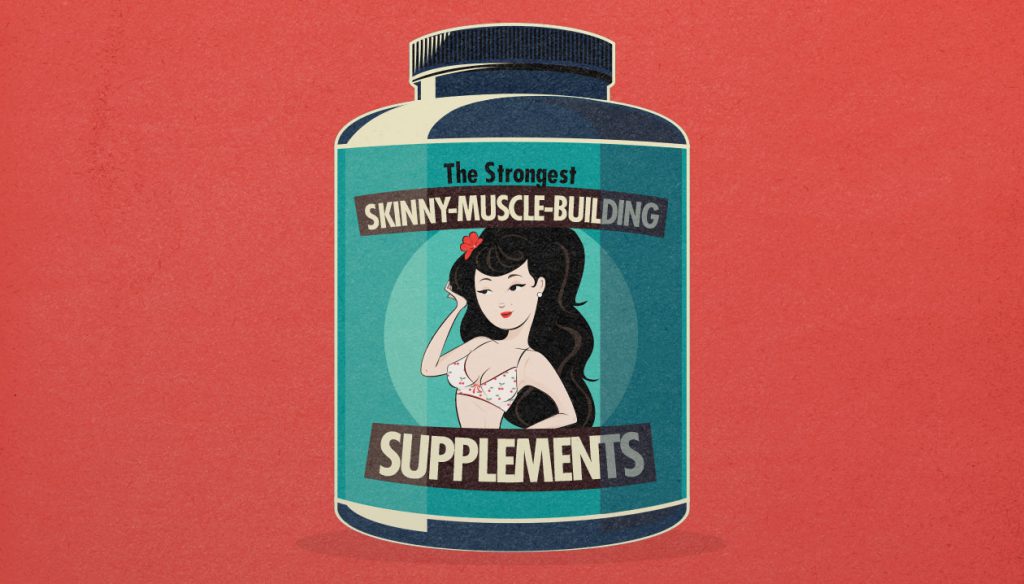
The Best Muscle-Building Supplements for Women
There are only a few supplements that are good for helping women build muscle. They’re well-researched, affordable, healthy, and safe, too. But good luck finding them amongst the thousands of ineffective supplements lining the shelves. Especially since most of those supplements are marketed toward men trying to get jacked or women trying to get thinner.
In this article, we’ll go over the best muscle-building supplements for women eager to get bigger and stronger. We only recommend a few supplements, and most have whole-food alternatives. None are mandatory.
We haven’t covered every single muscle-building supplement here, but we’ve got over a decade of experience helping thousands of women bulk up, and we keep up with the research published every month. Feel free to ask us questions in the comments.
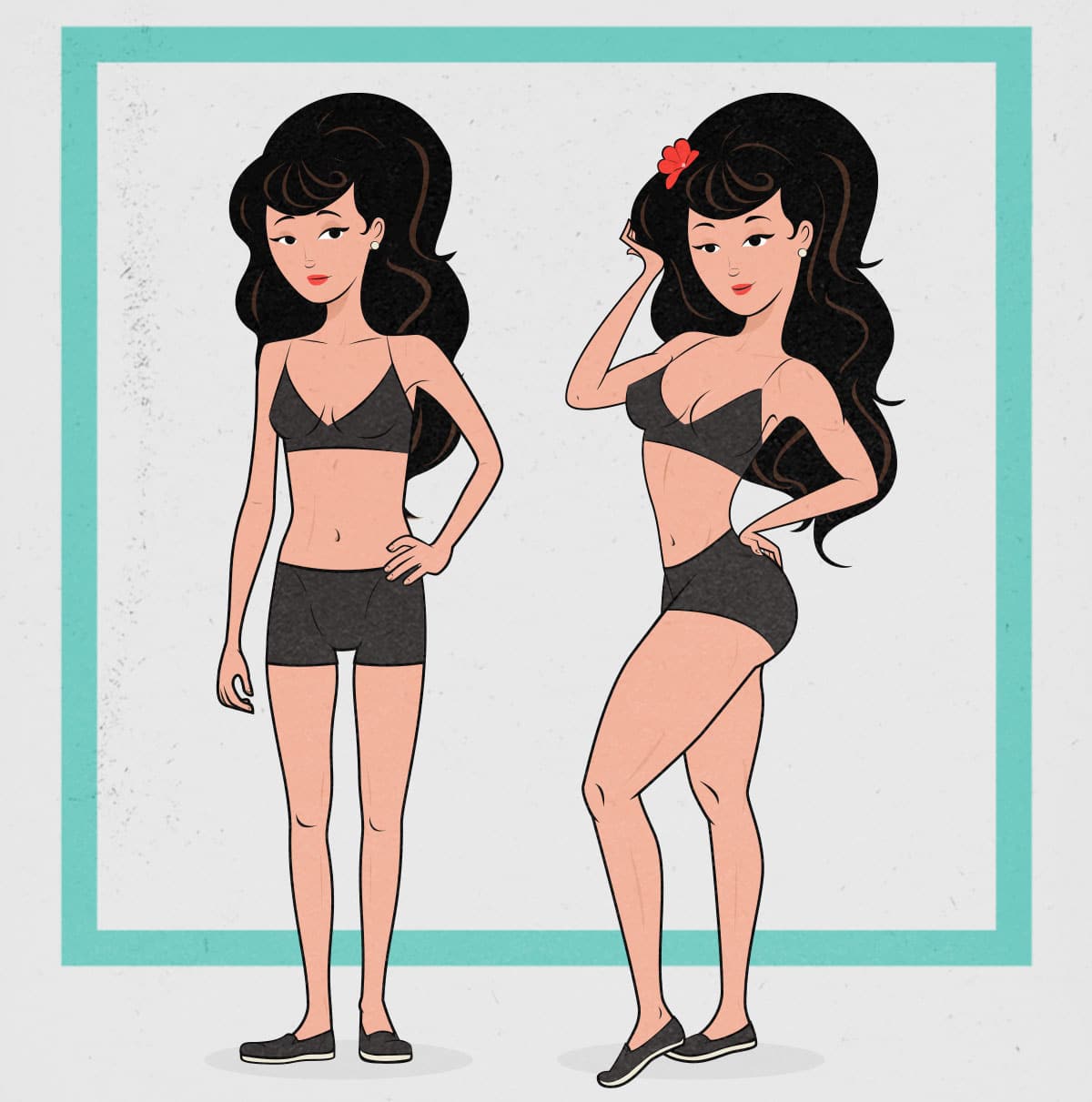
Introduction
This supplement guide has one type of person in mind: naturally skinny women trying to build muscle and gain weight as quickly and healthfully as possible. If that’s you, you’ll soon need to go shopping for bigger clothes.
There are no affiliate links. We don’t sell supplements.
Weight-Gainers for Women?
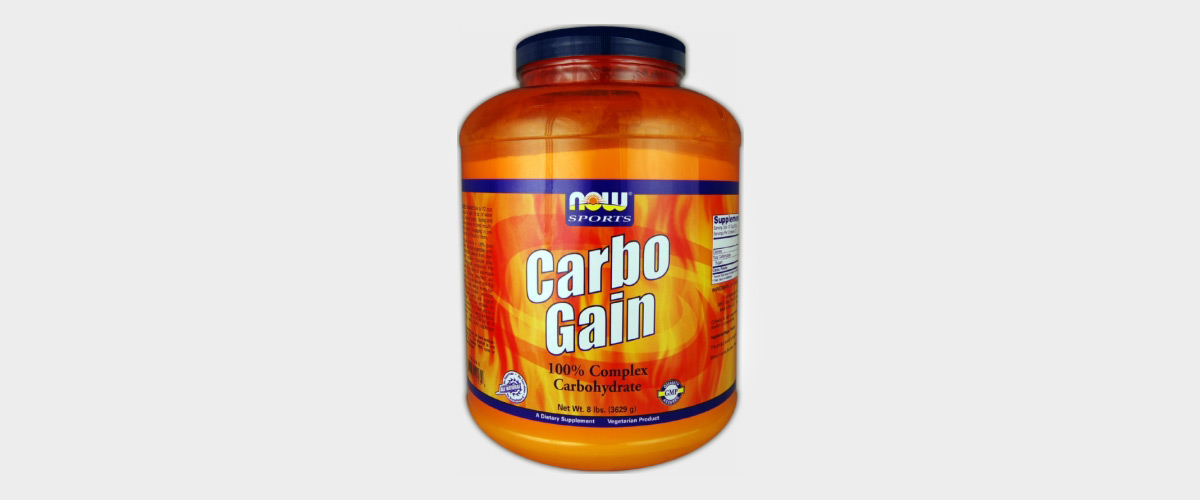
In this 8-week weight training study, people who added weight-gainers into their diets gained 7.5 more pounds of muscle than the control group while simultaneously losing fat. Those results come from lifting weights and eating more calories, not from anything magical about the supplement. Still, weight gainers are an easy way to add extra calories to your diet.
A more nutritious way to add calories to your diet is to make a weight-gain smoothie. We’ve got a full article on that here.
Protein Powder for Building Muscle
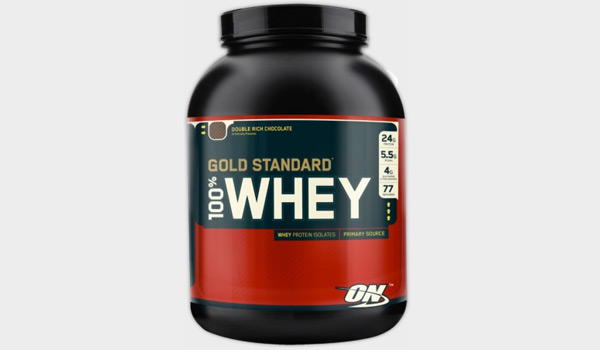
Our muscles are made out of the protein we eat. If we don’t eat enough protein, it can severely limit the amount of muscle we build.
Eating roughly 0.7–1 gram of protein per pound bodyweight per day is enough to maximize your rate of muscle growth. Most women don’t eat quite that much, giving them an opportunity to build muscle faster by adding a bit of protein to their diets (study, study). Whether you eat more chicken, greek yogurt, whey protein, plant-based protein powder, or pumpkin seeds is up to you, though. All will work.
Having whey protein after working out stimulates extra muscle growth. You’ve got up to 2 hours after training to have the protein (study, study), but I’d recommend having it right away. That will get you into the habit of working out and having protein. It will also allow you to get back to eating your regular meals more quickly.
As for how much to take, a scoop of protein powder usually contains 24–27 grams of protein, which is ideal for many people. However, when you train your entire body every workout, as we recommend, we’re stimulating an unusually large number of muscles all at once, so we benefit from a slightly higher protein intake after training.
More muscles stimulated at once = quicker muscle growth = higher protein needs.
So we recommend having 40 grams of whey protein powder after working out. This has the added benefit of giving you extra calories as well, and as with maltodextrin, it’s very difficult for your body to store these extra calories as fat. This should help you make leaner gains.
Of all the protein powders, whey protein isolate is the best default option. Whey protein is a byproduct formed during the creation of milk. Farmers used to throw it away, now they sell it to weightlifters. The processing of whey is fairly minimal, allowing it to retain many vitamins and minerals. Many nutritionists (like me!) consider it whole food, similar to cheese and yogurt.
If you don’t handle whey protein well (allergies) or you’re avoiding it for moral reasons (e.g. you’re a vegan), then you can go with plant-based protein powder. Here’s our article on plant-based protein options.
Creatine for Boosting Muscle Growth
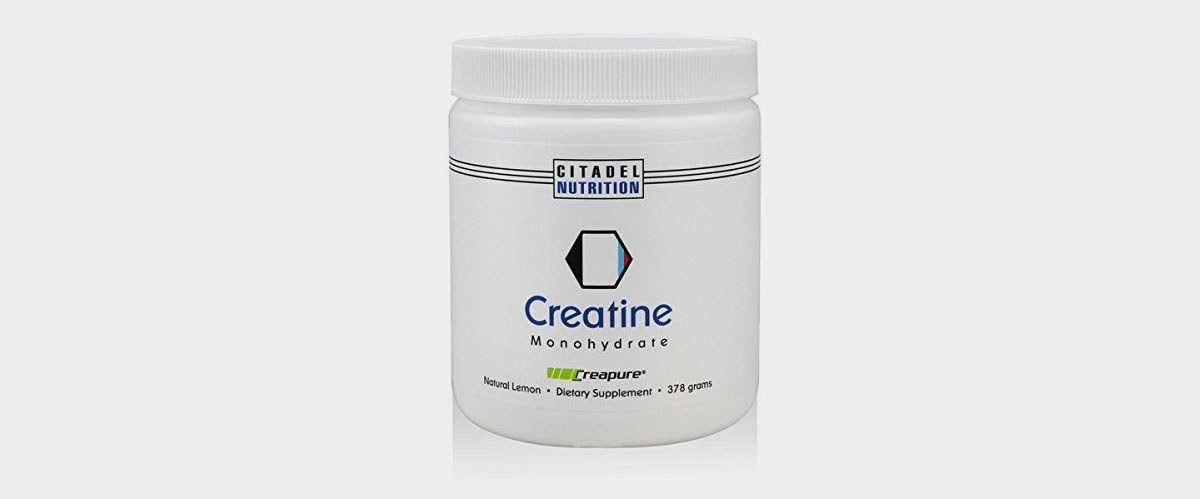
Creatine is an extremely popular bulking supplement for men. It’s much less popular with women. I think that’s because fewer women are actively trying to gain weight and build muscle. Creatine works just as well for women as for men. Most studies show that it’s by far the most effective muscle-building supplement (study, study, study, study, study).
Some studies show as much as a 50% improvement in how much muscle you can build. But let’s look at the overall body of research, especially the studies focusing on women between the ages of 18–40. I think it would be more reasonable to expect a 25% improvement. This still puts it ahead of the other similar muscle-building supplements on the market (such as beta-alanine).
- Creatine is safe. It has no major side effects even after several decades of research (study, study, study). In fact, it’s being investigated as a way to prevent depression and Alzheimer’s.
- You’ll gain less fat. Creatine improves insulin sensitivity in your muscle cells, and more insulin sensitivity in your muscle cells means that more of the calories you eat are used for muscle growth instead of fat storage.
- It’s cheap. It’s been around for so long that the price has plummeted. You can buy the highest quality creatine monohydrate for cents per serving.
Overall, creatine is the most powerful muscle-building supplement; it’s good for our health, affordable, and there’s no reason not to take it. Just keep in mind that it hasn’t been well-studied in women who are pregnant or breastfeeding.
*Creatine supplements aren’t made from animal products, making it great for vegetarians and vegans. If you’re bulking on a vegan diet, you’ll be more likely to have a deficiency in creatine, making supplementation even more beneficial (study).
Pre-Workouts or Caffeine for Energy
A good pre-workout supplement won’t directly build more muscle. But it can improve energy and motivation and make training feel less painful, indirectly helping you build more muscle.
Most pre-workout supplements combine a bunch of different ingredients of varying effectiveness instead of using just a single effective ingredient. With muscle-building supplements, the key ingredient is always creatine. With pre-workout supplements, the key ingredient is always caffeine. Caffeine allows you to squeeze out more reps and do more sets before becoming fatigued, increasing your lifting volume and thus allowing you to build more muscle more quickly.
There’s a plus side to the addictive nature of caffeine, too. If you build a ritual out of your pre-workout caffeine, you can become addicted to your gym habit. You’ll crave the coffee, the coffee will make you think of going to the gym, and your healthy exercise habit will be that much easier to stick to.
The problem is, to get the performance-enhancing benefits of caffeine, you’d need to consume a lot of caffeine. Something like 300mg. That’s at least 3–4 coffees. And you may not wish to be taking that much caffeine that often, especially if it makes you jittery or anxious.
What we recommend is having a coffee before working out, especially if you’re lacking motivation, feel tired, or don’t feel like grinding through tough sets of heavy exercises. It might give you that extra kick in the glutes you need to get going.
Summary
Whey protein and creatine are the two best supplements for building muscle. If you want more energy while lifting, you could have coffee (or a pre-workout) before working out.
Once you have the supplements in your hands, here’s how to take them:
- Creatine: Take 3–5 grams of creatine every day. Mix it into a tall glass of water every morning. If it hurts your stomach, split it into two smaller doses: half in the morning and half in the afternoon.
- Protein powder: use as much protein powder as you need to reach your daily protein goals. You could also get into the habit of a post-workout protein shake right after training.
- Caffeine (or a pre-workout supplement) 30 minutes before working out.


